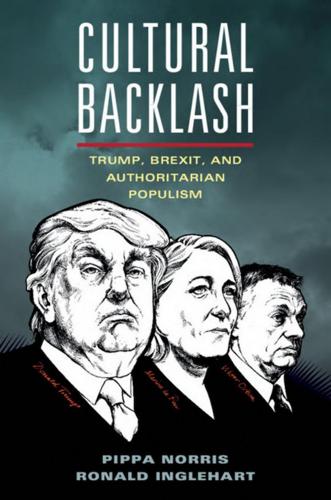
Cultural Backlash: Trump, Brexit, and Authoritarian Populism
by
Pippa Norris
and
Ronald Inglehart
Published 31 Dec 2018
Should we give top priority to diversity or conformity? Higher wages or more leisure time? Individualism or communitarianism? Open or closed societies? The spiritual or the secular? Nationalism or cosmopolitanism? Minority rights or majority rule? Pluralistic bargaining or strong, decisive leadership? Materialism or post-materialism? Milton Rokeach defines values as: ‘an enduring belief that a specific mode of conduct or end state of existence is personally or socially preferable to an opposite or converse mode of conduct or end state of existence.’5 Attitudes and opinions are less deep-rooted and enduring than values, shifting more easily in the light of new information or experiences, such as views approving or disapproving of government performance or public policies, and opinions about the risks of climate change or terrorism.
…
The experience of attending university has also changed significantly during recent decades, with globalization and the demand for tertiary qualifications expanding student mobility to study abroad, diversifying the college population. Overall, in OECD countries, today around 6 percent of students in higher education are international, with this proportion rising to 20 percent in the UK.14 In addition to being strongly linked with having post-material values and socially liberal attitudes, education expands Part I Introduction 39 90.00 % of relevant age group 80.00 70.00 Women 60.00 50.00 Men 40.00 30.00 20.00 10.00 0.00 Y1970 Y1975 Y1980 Y1985 All Y1990 Y1995 Women Y2000 Y2005 Y2010 Y2015 Men Figure 2.4. Higher education by sex in high-income societies, 1970–2015 Notes: Percentage gross enrollment in tertiary education by sex, as a proportion of the student-age population, high-income societies.
…
We can compare several indicators of values across generational cohorts and over time, including (i) adherence to materialist or post-materialist values; (ii) attitudes toward socially liberal and socially conservative policy issues, such as gay rights, gender equality, and immigration; (iii) ideological self-identification as liberals or conservatives; (iv) support for authoritarian or libertarian personal values, such as obedience and security; and finally (v) political trust, as an indicator of the appeal of populist rhetoric. To confirm the robustness of our key findings, we examine trends in each of these variables, drawing on a range of alternative surveys where time-series data are available in America and in Europe. Post-Materialism The first component of our argument, the ‘silent revolution’ theory of value change, holds that conditions of existential security experienced by Western societies during the post-war decades brought an intergenerational shift toward post-materialist and socially liberal values. A substantial body of survey evidence has documented the cultural transformation that occurred during the last half century.17 Time-series and cohort analysis has demonstrated growing support for socially liberal attitudes among the younger generations and the college educated Part II Authoritarian-Populist Values 93 in Western societies.18 The spread of post-materialist values arises primarily through long-term processes of inter-generational replacement, as the Interwar cohort fades away and Baby Boomers and the Millennials replace them in the adult population.
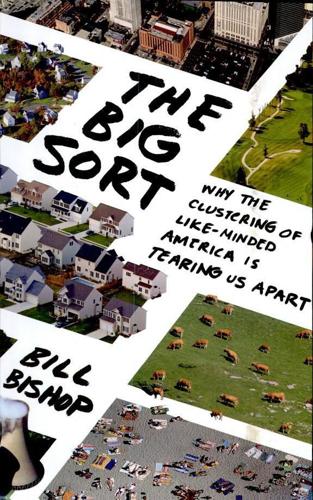
The Big Sort: Why the Clustering of Like-Minded America Is Tearing Us Apart
by
Bill Bishop
and
Robert G. Cushing
Published 6 May 2008
The reason Bill Clinton didn't declare his own "war on poverty" was that so few people trusted government to engage in such an ambitious campaign—fewer than in the era before 1965, when Americans would lose their trust in government to do much of anything at all.64 Where Are All the "Good" Men? Ron Inglehart's theory of post-materialism has engendered surprisingly little interest among observers of American politics.* Harold Wilensky, an esteemed political scientist at the University of California, Berkeley, has called the post-materialist culture shift a "myth." Wilensky has written that the surveys Inglehart used have technical problems and their results show little significant change.
…
Wilensky has written that the surveys Inglehart used have technical problems and their results show little significant change. Besides, Wilensky has argued, most of the trends identified by the post-materialists (women's rights, environmentalism) were in motion during the heyday of the industrial economy. Wilensky suggests that we "drop" terms such as "post-materialism" "from our vocabulary."65 Other scholars, however, acknowledge that society has changed focus. Daniel Bell announced the "coming of post-industrial society" in the title of his 1973 book. Working with Ronald Inglehart, the University of Chicago's Terry Nichols Clark has described a "new political culture" born of economic prosperity and a more democratic workplace.*66 Market researchers Paul Ray and Sherry Ruth Anderson have described a growing number of "cultural creatives," people who have many of the same interests and sociabilities as Inglehart's post-materialists and those Clark has identified in his new political culture.67 Ruy Teixeira and John Judis have predicted a new constituency for the Democratic Party in the fast-growing tech cities.
…
Because post-materialists are less trusting of established authorities, including doctors and scientists. In November 2005, the Swiss voted to support a five-year ban on genetically modified crops, reflecting the rejection of some kinds of scientific innovations by the increasingly post-materialist Europeans.76 Canada ranks higher on Inglehart's measures of post-materialism than the United States. Little wonder that a New York Times headline read, "Canada's Views on Social Issues Is Opening Rifts with the U.S."77 There is also a post-materialist geography in the United States. The Washington Post reported in early 2006 that "Democratic-leaning states increasingly are regulating energy use and emissions," typical post-materialist environmental issues.78 Judges in Massachusetts and New Jersey have okayed gay marriage, and the list of states funding stem cell research is largely colored blue.
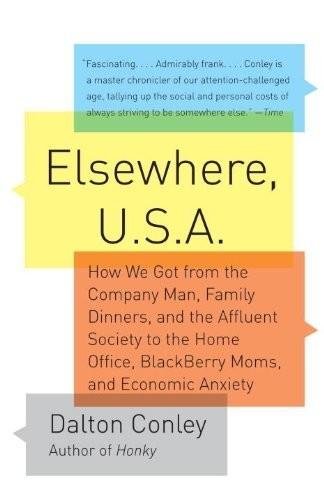
Elsewhere, U.S.A: How We Got From the Company Man, Family Dinners, and the Affluent Society to the Home Office, BlackBerry Moms,and Economic Anxiety
by
Dalton Conley
Published 27 Dec 2008
In earlier epochs, economic production was based on fulfilling basic material needs for survival. However, as we entered what some folks have dubbed “late capitalism,” an increasing amount of economic activity is now devoted to fulfilling social-psychological needs. Ronald Inglehart called this “post-materialism,” in his 1997 book, The Silent Revolution.1 The critical issue is that an increasingly larger share of the goods or services we produce and consume in a post-material economy are what Hirsch termed positional goods. This type of good is distinct in that its value depends on the fact that others don’t consume it.2 Certain goods are inherently positional: A penthouse apartment is, by definition, a positional good since there can be only one top floor per building.
…
However, in a post-industrial service economy, where most of us are working not for basic survival but to acquire an ever-expanding basket of goods and services, and where most of the highly valued prizes are inherently limited by their nature as relative status markers, then the cashier has no choice but to keep working in order to try her darndest to keep up her family’s relative income. Add in the fact that her job involves interacting with people all day long in a highly constrained way—acting pleasantly subservient is the nature of the game in the lower-wage service sector—and you start to comprehend the social nature of poverty in the post-material age. Some on the left wonder why there is not more of a backlash against the high (and rising) degree of income inequality in the United States. But it’s really not too bewildering. It’s because we are all implicated in the greatest Ponzi scheme history has ever witnessed. We all have to buy into this economic pyramid to keep it running.
…
Perhaps we might support the Statue of Liberty and the Global Fund to Fight AIDS directly through donations or (God forbid) tax dollars? It would at least keep our notion of a coherent moral self intact. The merging of “wasteful” consumption with guilt-relieving charity in the same purchase act is yet another manifestation of intravidualistic self-splitting. The self-splitting guilt running through the post-material society produces other paradoxes in our public, political sphere as well. For example, ours is a culture where best sellers such as Tom Frank’s What’s the Matter with Kansas? appear, wondering why “peasants” in the so-called heartland apparently vote Republican (i.e., for lower taxes and less redistributive spending) against their own economic interests; but it is also one in which nobody wonders what’s the matter with Manhattan (or Greenwich, Connecticut), where the richest 2 percent of the population routinely vote for higher taxes on themselves by pulling the Democratic lever.
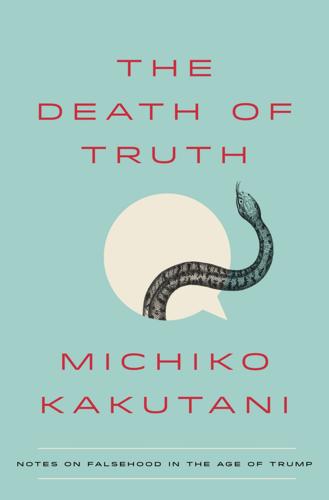
The Death of Truth: Notes on Falsehood in the Age of Trump
by
Michiko Kakutani
Published 17 Jul 2018
“The strategy is to take a crack in our society and turn it into a chasm,” said Senator Angus King of Maine during a Senate Intelligence Committee hearing on Russian interference in the election. Reporting from several publications found that YouTube’s recommendation engine seemed to be steering viewers toward divisive, sensationalistic, and conspiracy-minded content. And Twitter found that more than fifty thousand Russia-linked accounts on its platform were posting material about the 2016 election. A report from Oxford University found that in the run-up to the election the number of links on Twitter to “Russian news stories, unverified or irrelevant links to WikiLeaks pages, or junk news” exceeded the number of links to professionally researched and published news.
…
These agents—some of whom visited the United States under false pretenses—set up hundreds of fake social media accounts, posing as (and sometimes stealing the identities of) real Americans and using an American server to mask their location in Russia. Using these fictional personas, the Russians posted material on Facebook, Instagram, Twitter, and YouTube and built up substantial followings. Their mission: to spread derogatory information about Hillary Clinton (and during the primaries Ted Cruz and Marco Rubio) and distrust about the political system in general. In addition to trying to widen schisms among voters over issues like immigration, religion, and race, the Russians spread fake news aimed at boosting Trump’s popularity and hurting Clinton’s.
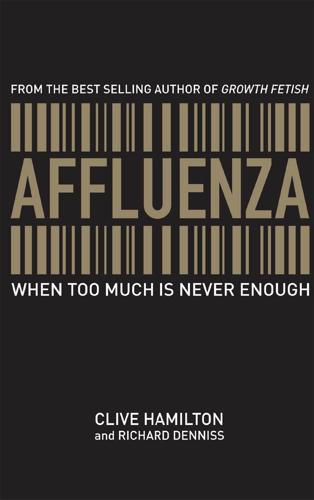
Affluenza: When Too Much Is Never Enough
by
Clive Hamilton
and
Richard Denniss
Published 31 May 2005
For the most part—even though they might express a social critique that sees obsessive materialism as the source of much personal unhappiness and understand that Australian society is focused on consumption to an unhealthy degree—their actions are not primarily motivated by a conscious politics of post-materialism. Instead, it is a desire to step off the treadmill. They have redefined ‘the good life’ in a way that attaches less importance to money and material acquisition; in this sense, they represent an unorganised post-materialist social movement. Downshifting is not confined to middle-class professionals and successful business people who can afford to cut their incomes because they have accumulated assets.
…
CHAPTER 11 1 Lambesis Agency 2004, L Style Report, 9th edn, <http://www.lstylereport.com> [11 January 2005]. 209 INDEX Abbott, Tony, 133 advertising, 4, 28, 36–40, 41, 43, 55, 61, 101, 109, 120, 126,172, 187 and neuroscience, 41–2 fake memories in, 46 children and, 47, 50–51 of breakfast cereals, 48–50, 150–1 of cars, 10, 45 of junk food, 51 of margarine, 43 of tobacco, 51–2, 125 of vitamins, 94 restrictions on, 188 use of nagging, 53–4 affluenza, defined, 3, 7 alcohol, 115–17, 180 annual leave see holiday leave anorexia, 16 appliances, 22–3, 37, 38 attention deficit hyperactivity disorder, 55 Aussie battler, 3, 133–4, 136, 139, 151, 180, see also politics Australian Labor Party, 3, 137–9, 151, 191 bankruptcy, 72–3, 175 banks, 12, 75–6, 77–80 barbecues, 23–4 210 INDEX Blair, Tony, 191 botox, 37, 128 brands, 23, 34, 38–40, 41–33, 45, 53, 55, 56, 110, 187 brand loyalty, 39, 55, 189 brand disloyalty, 190 see also advertising; marketing Bray, Robert, 66 Buddhism, 17 caesareans, 34 Calvinism, 16, 17 cars, 10, 13, 45 4WDs, 44–5, 188 see also advertising celebrity, need for, 56–7 children, 21 advertising and, 47–57, 150 and clothes, 33–4 as fashion accessories, 33 behavioural problems of, 55 financial calculus of having, 34–5, 142–5, impact of materialism on, 149–50 sexualisation of, 57 tinys, 52–3 tweens, 55–7 see also downshifting choice, alleged benefits of, 40–1 clothes, 13, 45, 166 see also children Coalition Government, 136–9 see also Liberal Party community, 95, 119, 146, 148, 183 compulsive shopping, 15, 61 see also oniomania conscious consumption, 166, 186–90 conspicuous consumption, 8, 88, 96 cosmetic surgery, 10, 57, 127–9, see also botox cosmetics, 37 Costello, Peter, 35, 141 credit cards, 10–2, 19, 72–81, 102, 103 see also debt debt, 71 passim, 137, 179 attitudes to, 74, 75 Debtors Anonymous, 61, 80–1 foreign debt truck, 82 home equity loans, 79–80 marketing of, 71, 75–7 national debt, 81–4 211 AFFLUENZA deferred happiness syndrome, 89–2, 98, 169 deferrers, 175–6 see also deferred happiness syndrome democratisation of luxury, 26 depression, 16, 38, 93, 114 deprivation, 3, 66, 192, see also poverty, hardship disease-mongering, 120–7 doorbuster sales, 78 downshifters characteristics of, 154–6 motivations of, 156–7, 158 passim new lifestyle of, 165–7 regrets of, 173 downshifting, 17, 152, 153 passim, 180 children and, 156, 159, 160, 166–7 defined, 153 for dogs, 33 politics of, 175, 183–6 reactions to, 176–70 drugs, 114–16, 118 Easterlin, Richard, 6 Eckersley, Richard, 148 economic growth, 3, 4–5, 62–3, 114, 118, 136, 141, 159, 185, 190, 193 environment, 111, 112, 157, 179, 190, 193, 194 evangelical Christianity, 182–3 family size, 20–1 federal election 2004, 3, 136–8 female sexual dysfunction, 121–3 feminism, 27 flexible work hours see work hours Frank, Robert, 9 Frey, Bruno, 63 full employment, 192 gratifiers, 175 growth fetishism, viii, 18, 142, 193 Guevara, Che, 28 happiness, 58, 63–4, 113, 118, 127, 146, 152, 175–6 hardship imagined, 64 genuine, 66 212 INDEX Hayek, Friedrich, 186 health, 113, 156, 157, 164, 166, 179, 193 see also work hours hedonic treadmill, 6, 58, 184 holiday leave, 87, 88, 93 Hood, Robin, 190 houses, 13, 20, 60, 101 size of, 20, 21–2, 37 prices of, 20, 21–2, 134, 137, 179 Howard, John, 82, 138, 141, 142 Idell, Cheryl, 53 identity, 13–4, 45 imports, 73, 83–4 incomes, 4, 58–9, 112 Indigenous Australians, 113 intermittent husband syndrome, 91 karoshi, 92 Kasser, Tim, 14 Klein, Naomi, 38 Latham, Mark, 137, 138 Liberal Party, 136, 138, 139, 151 Luis Vuitton, 9, 28 luxury fever, 8–10, 12, 19, 135, 143, 178 luxury goods, 9–10, 13, 16, 19, 21, 26, 127, 170 Mandelson, Peter, 191 marketing, 13, 28, 37–8, 42, 45, 47, 53, 104, 110–1, 118, 120, 126, 179 see also advertising materialism, 14–5, 17, 47, 55, 89, 119, 154, 184 and values, 146–52 meningococcal disease, 120 middle class, 8–9, 59, 74, 136 middle-class welfare, 139-42, 180 Mill, John Stuart, 138, 186 money, 5, 7, 11, 16–7, 19, 58, 63, 67–8, 80, 97, 98–9, 103, 107, 112, 120, 139, 143–4, 148, 152, 159, 166, 171, 175–7, 178, 187 hunger for, 6, 17, 18, 137, 146, 180, 183–4 see also debt money coma, 80 Moynihan, Ray, 121, 123 213 AFFLUENZA needs, 4, 7, 29, 59–63, 65, 66, 100, 147, 148 neoliberalism, 7, 17, 36, 39–40, 79, 138 as new form of oppression, 186 of relationships, 182 of tax cuts, 136, 139 of the Aussie battler, 133–5, 151 of welfare, 139, 140, 141, 180 of wellbeing, 193–4 progressive, 181, 182 pornography, 151 post-materialism, 4, 155, 157, 184 poverty, 18, 181, 190–2 poverty line, 66–7 presenteeism, 94 privatisation, 40 psychology, role in marketing, 36–41, 46, 51, 53–4, 61 obesity, 118 obsolescence, 110 oniomania, 15–6 see also compulsive shopping Olsen twins, 57 O’Neill, Jessie, 7 ovens, 22–3 overconsumption, 7, 19 passim, 72, 96, 122, 178 overwork see work hours Pavlov, Ivan, 41, 47 plastic bag levy, 103 pets, 28–33 humanisation of, 30, 33 pharmaceutical companies, 120–1, 126 Pocock, Barbara, 98 politics, 60–1, 66, 119, 183 conservative, 144, 181, 190 of choice, 168, 172 relationships, 14, 81, 97, 179, 193, 194 relationship debts, 175 see also work hours retail therapy, 16, 100–1 retirement anxiety, 92, 173–4 right-hand ring, 27 Ritalin, 118 Roberts, Kevin, 39 saving, 71, 82 see also debt 214 INDEX Schor, Juliet, 48 sea change, 153, 155 see also downshifting self-storage industry, 25, 102 social anxiety disorder, 124–6 status, 170 Stutzer, Alois, 63 suffering rich, 63 sunglasses, 25–6 television, 9, 21, 22, 60, 183, 188 lifestyle programs, 37 sales, 24–5 Trapaga, Monica, 49–50 trickle down theory, 191 twin deficits theory, 83 values, 180–3 see also materialism Veblen, Thorstein, 8 Vidal, Gore, 6 voluntary simplicity, 154, 187 see also downshifting wasteful consumption, 100 passim, 179, 190, 194 and guilt, 106–8, 112 wealth, 81–2 whitegoods, 23 see also appliances wellbeing, 14, 40, 54, 58, 113, 115, 118, 142, 163, 190 wellbeing manifesto, 193, 217–24 work hours, 81, 91, 95–6, 158, 161, 163, 174, 179 and children, 90–1 excessive, 85–9, 158 impact on communities, 95–7 impact on health, 90–4, 122 impact on relationships, 85, 90, 91, 97–9, 122, 149 working class, 8–9 workophiles, 87 215 A political manifesto for wellbeing Preamble Australians are three times richer than their parents and grandparents were in the 1950s, but they are not happier.
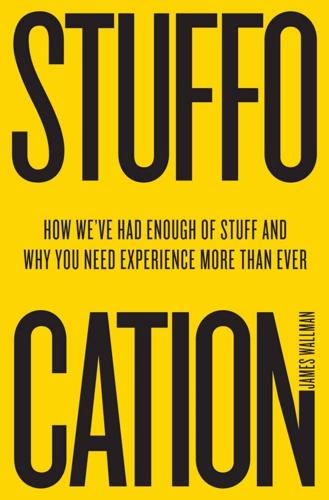
Stuffocation
by
James Wallman
Published 6 Dec 2013
There is the problem of stalling levels of happiness: since 1990, the average Chinese person’s material living standard has increased by four times, for instance, yet happiness has not increased at all. There are the young who are already evolving away from materialism. “China in general is in a grossly materialistic phase,” Ron Inglehart told me. “But post-materialism is already beginning to emerge in a young, significant minority.” And then there are the wealthy, who already have enough. They are already beginning to prefer experiences over material goods. In China, the experiential luxury sector – which includes days out at spas, playing golf and going on holiday – is growing around 25% faster than the personal luxury goods sector.
…
For updates since then, see Ronald Inglehart, “Changing Values among Western Publics from 1970 to 2006”, West European Politics Vol. 31, Nos. 1–2, January–March 2008; also, the World Values Survey (www.worldvaluessurvey.org). Many make sense of the shift to less materialistic values by referring to Abraham Maslow, “A Theory of Human Motivation”, Psychological Review Vol. 50, No. 4, 1943. Also, read about a generational shift to post-materialism in David Brooks, “The Experience Economy”, New York Times, 14 February 2011. Advertising agency research This research was conducted by an advertising agency called Euro RSCG Worldwide, which, in the time it’s taken me to write the book, has become Havas Worldwide. The research paper is called The New Consumer (www.thenewconsumer.com).
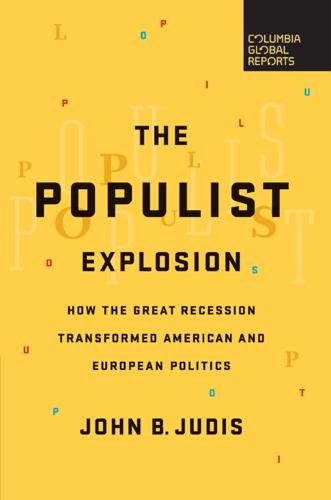
The Populist Explosion: How the Great Recession Transformed American and European Politics
by
John B. Judis
Published 11 Sep 2016
On average, Sanders got his greatest support among young people. From my observations at rallies, many of these young voters were either going to college or had recently graduated from college. They are, in effect, the descendants of the McGovern generation who began gravitating to the Democratic party over post-material social and environmental concerns and over moral outrage at the Vietnam War and later the American invasion of Iraq and more recently, in the wake of the Great Recession, what they saw as the irresponsibility of Wall Street and the billionaire class. But there was also a material dimension to their concern that Sanders touched.

The Secret War Between Downloading and Uploading: Tales of the Computer as Culture Machine
by
Peter Lunenfeld
Published 31 Mar 2011
EIRs measure the effects that any building would have on the quality of the human and natural environment surrounding it. EIRs discuss a range of alternatives and strategies, and assess the impact of each combination of factors. Assessing these factors is always important, but it becomes even more so as the Web and networks evolve 79 CHAPTER 4 as social media, with vastly larger groups of people posting material and creating viable communities online. Accounting for Web n.0 as an ever-escalating series of developments and redevelopments, this chapter offers a series of linked impact reports on the culture machine’s electronic environments. Taxonomics No matter the name, systems theorists have characterized the emergent Web as displaying robust architectures of participation, having evolved into a truly social software, with a myriad of new ways to link people together.
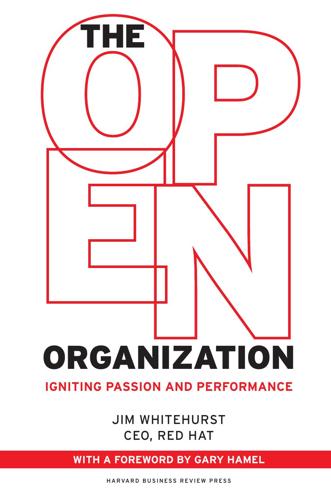
The Open Organization: Igniting Passion and Performance
by
Jim Whitehurst
Published 1 Jun 2015
Fortunately, before my conventional organization top-down instincts kicked in, I got some advice from other veteran Red Hatters who suggested that I reach out to the most active memo-list users and posters and ask them to come up with the solution. And they did: they developed a set of guidelines and self-monitored the list, coaching people who were posting material that did not fit the role of the memo-list. They created another list for humorous material, because they recognized that associates, especially remote Red Hatters, wanted an outlet for sharing nonwork-related things with like-minded people. That was a key lesson for me in terms of learning how to foster participation without setting the rigid ground rules that tend to push associates away from contributing.

Home Grown: How Domestic Violence Turns Men Into Terrorists
by
Joan Smith
Published 5 Apr 2019
He reported the threats to the police, telling the paper’s lawyers he was worried that Ramos might ‘come in and shoot us’, but the police weren’t convinced Ramos was serious. His obsessive hatred of the media by now extended far beyond the staff of the Capital Gazette, latching on to stories about journalists being murdered. He eagerly followed reports of the deaths of foreign correspondents, including the murders of James Foley and Steven Sotloff by ISIS, and posted material about the massacre at the Charlie Hebdo office in Paris, including a digitally altered image of one of the paper’s staff with a bullet hole in his head. But he never forgot his original grudge against the Capital Gazette, tweeting a death threat against Mr Hartley and his editor shortly afterwards.
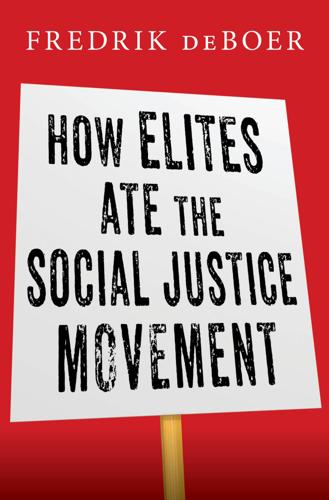
How Elites Ate the Social Justice Movement
by
Fredrik Deboer
Published 4 Sep 2023
Reviewing the literature for New York magazine in 2022, Eric Levitz noted that “people who experience material security in youth tend to develop distinctive values and preferences from those who do not: if childhood teaches you to take your basic material needs for granted, you’re more likely to develop culturally progressive values and post-material policy priorities.” This is not entirely flattering to those who hold liberal values, as it makes such beliefs seem like luxury items. But it makes a great deal of sense: once people are able to assume that they will not be in a zero-sum battle with others for their most basic needs, they’re able to open their minds to different kinds of difference, such as to racial minorities or immigrants—they no longer see the Other as competition for scarce resources.
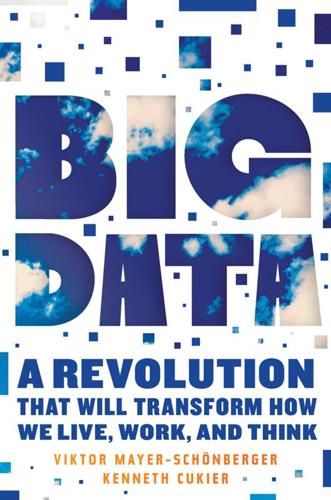
Big Data: A Revolution That Will Transform How We Live, Work, and Think
by
Viktor Mayer-Schonberger
and
Kenneth Cukier
Published 5 Mar 2013
The situation gets odder. Doug Laney, vice president of research at Gartner, a market research firm, crunched the numbers during the period before the initial public offering (IPO) and reckoned that Facebook had collected 2.1 trillion pieces of “monetizable content” between 2009 and 2011, such as “likes,” posted material, and comments. Compared against its IPO valuation, this means that each item, considered as a discrete data point, had a value of about five cents. Another way of looking at it is that every Facebook user was worth around $100, since users are the source of the information that Facebook collects.
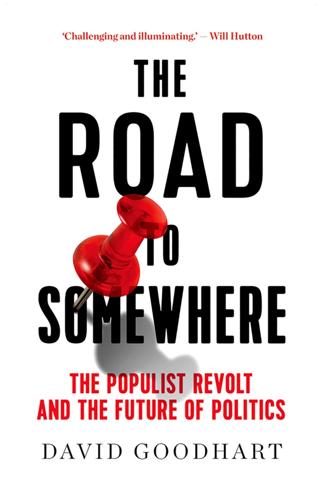
The Road to Somewhere: The Populist Revolt and the Future of Politics
by
David Goodhart
Published 7 Jan 2017
The HS3 project is supposed to deal with this at some point in the future but it is a far more important national priority than the HS2 high speed link between Manchester and London, which many people think will merely reinforce the dominance of the capital. More will be spent on London’s £4.6 billion Crossrail project 2016–2021 than on all transport projects in the North in the same period.14 If place is central to the more rooted Somewhere worldview, it is also increasingly important to a section of Anywhere opinion through the post-material stress on the environment. Somewhere rootedness and Anywhere green sensibility is one important bridge across the great divide. Another bridge may be a mutual interest in political reform. The current electoral system encourages a narrow focus on those in swing seats. Proportional representation is a favourite subject of a sub-section of the Anywhere political class but it may also be a route to a better balance of representation between Anywhere and Somewhere interests.
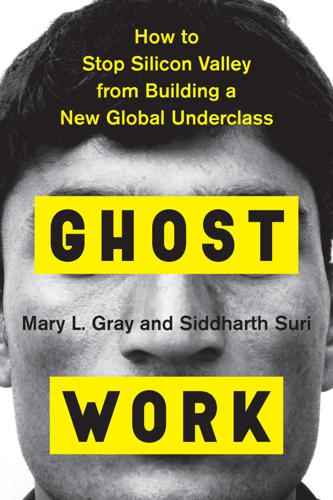
Ghost Work: How to Stop Silicon Valley From Building a New Global Underclass
by
Mary L. Gray
and
Siddharth Suri
Published 6 May 2019
Once MTurk could pay out in cash instead of gift cards, a vast pool of U.S. and Indian workers vying for posted jobs were pitted against other workers who were more casually topping off Amazon gift cards from other countries.5 MTurk filled a much-needed niche. Companies and individuals putting more and more of their products online needed some way to check the accuracy of their posted materials. Increasing numbers of people responsible for entering their receipts into expense reports for reimbursement at work could now turn to services like MTurk for quick help from a human able to take on the task, any time in the day, any day of the week. Startups at the time, like Yelp and those contractors hired to write and curate content for their databases, could offer accurate restaurant locations for neighborhoods that had never had such detailed listings before.
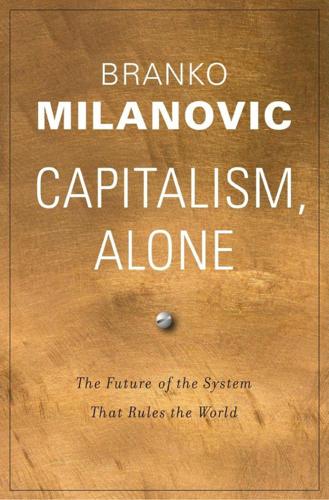
Capitalism, Alone: The Future of the System That Rules the World
by
Branko Milanovic
Published 23 Sep 2019
Regular, large-scale deliveries of Chinese goods to continental Europe and the United Kingdom via the Eurasian land route (much faster than via sea) have already started to take place.56 Not only does BRI represent an ideological challenge to the way the West has been handling economic development in the Global South, disregarding physical investments and focusing instead on “post-material” institution-building, but it will project Chinese influence far and wide and link BRI countries into what may be termed a Chinese sphere of influence. There are plans for any investment disputes that arise to be handled under the jurisdiction of a Chinese-created court (Economy 2018; Anthea Roberts, pers. comm.).

Dark Towers: Deutsche Bank, Donald Trump, and an Epic Trail of Destruction
by
David Enrich
Published 18 Feb 2020
Sony warned it would “hold you responsible for any damage or loss” stemming from the materials he had published. Val now had a choice. He could delete his fifty or so posts that contained Sony’s materials. He could keep them up but stop tweeting new stuff. Or he could just thumb his nose at Sony and its fancy lawyers and keep posting materials. Val chose option 3—and then shared with me the lawyers’ letters he had received. A few days before Christmas, the Journal published a story about Sony and David Boies threatening this random musician. The article made Val a little famous. (The legal threats fizzled.) “What about freedom of speech?
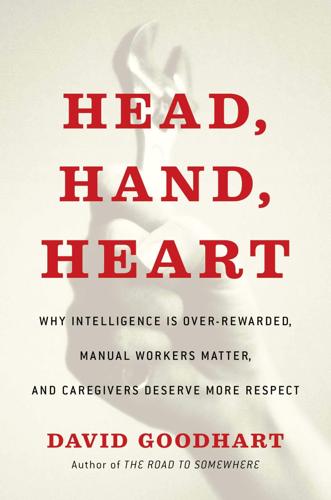
Head, Hand, Heart: Why Intelligence Is Over-Rewarded, Manual Workers Matter, and Caregivers Deserve More Respect
by
David Goodhart
Published 7 Sep 2020
They went out of duty and to support themselves and serve their families. But increasingly since the 1970s, as Head jobs have grown, the world of work has diverged between a large minority with careers—something that used to be the preserve of a small elite—and those who still just have jobs. And, according to the “post-materialism” theories of Ronald Inglehart, those with careers increasingly see work as a form of self-expression or self-actualization in the way that a craftsman once did. Inglehart estimates that in most of Europe and the United States this idea of work spread to about half the workforce between 1970 and 2006.42 On the other hand, according to the 2015 British Social Attitudes survey, a tenacious 40-plus percent of British employees continue to say that a job is just a way to earn money and nothing more, as they have done now since the 1980s.43 The so-called work instrumentalists are to be found in almost equal number in the United States, where the Pew Research Center finds that 51 percent of employed Americans says they get a sense of identity from their job and 47 percent say their job is just what they do for a living.44 This divide is unlikely to precisely follow the distinction between Head on the one hand and Hand and Heart on the other, not even between graduate and nongraduate, but it is just common sense to assume that the majority of graduate Head jobs are careers that provide an important aspect of meaning and identity to those who hold them.
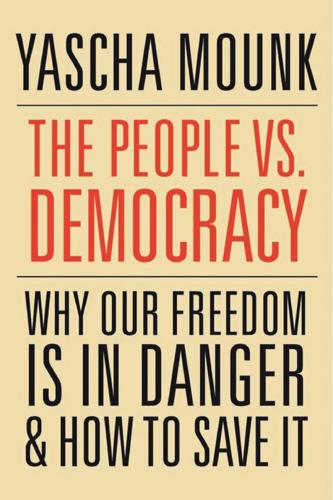
The People vs. Democracy: Why Our Freedom Is in Danger and How to Save It
by
Yascha Mounk
Published 15 Feb 2018
Abramson and Ronald Inglehart, “Generational Replacement and the Future of Postmaterialist Values,” Journal of Politics 49, no. 1 (1987): 231–241; and Ronald Inglehart, “Public Support for Environmental Protection: Objective Problems and Subjective Values in 43 Societies,” PS: Political Science and Politics 28, no. 1 (1995): 57–72. 61. Quoted in: Annie Lowrey, “Is It Better to Be Poor in Bangladesh or the Mississippi Delta?” Atlantic, March 8, 2017, https://www.theatlantic.com/business/archive/2017/03/angus-deaton-qa/518880/. 62. On the question of what I call post-post-materialism, see the interesting recent exchange between Robert Brym and Ronald Inglehart: Robert Brym, “After Postmaterialism: An Essay on China, Russia and the United States,” Canadian Journal of Sociology 41, no. 2 (2016): 195–211; and Ronald Inglehart, “After Postmaterialism: An Essay on China, Russia and the United States: A Comment,” Canadian Journal of Sociology 41, no. 2 (2016): 213–222.

Behind the Berlin Wall: East Germany and the Frontiers of Power
by
Patrick Major
Published 5 Nov 2009
Therefore, the GDR’s foreign and domestic policies were pulling in different directions. In order to quell the sorts of hopes which had been raised by the state’s human rights commitments, the SED had to resort to more and more police tactics in the 1980s. Moreover, the guarantee of a basic standard of living may have produced a more modest version of the post-material values which had encouraged the western New Left in the 1960s; by the 1980s an idealist opposition was beginning ¹³¹ SED-KL Anklam (Ideol. Komm.), ‘Analyse über die Lage in den Wohngebieten’, 30 Sept. 1963, MLHA Schwerin, BPA SED Neubrandenburg, IVA2/8/1433. Seeking Closure 293 to emerge, trying to save socialism from ‘real existing socialism’.

The Complete Thyroid Book
by
Kenneth Ain
and
M. Sara Rosenthal
Published 1 Mar 2005
I routinely send passages from doctor-authored books to colleagues from the American Thyroid Association, including Ken, to see if there is anything credible in these passages. “Complete nonsense” is the usual reply I get. And then there are the unmonitored patient listservs in which patients post material that goes uncorrected by any credible expert. We’ve observed an interesting pattern of cult-like mind control on some thyroid listservs and in some organizations. Conventional practitioners who try to educate patients about misinformation, and spend time challenging wrong information, frequently get attacked on the Internet, or labeled “closed minded” (as if it were a bad thing instead of the ethical thing to do when confronted with false claims by patients).
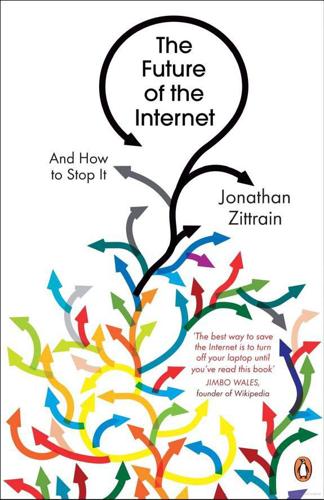
The Future of the Internet: And How to Stop It
by
Jonathan Zittrain
Published 27 May 2009
There was no gestalt, though: the top ten results for “Hitler” on Google could include a biography written by amateur historian Philip Gavin as part of his History Place Web site,17 a variety of texts from Holocaust remembrance organizations, and a site about “kitlers,” cats bearing uncanny resemblances to the tyrant.18 This scenario exhibits generativity along the classic Libertarian model: allow individuals the freedom to express themselves and they will as they choose. We are then free to read the results. The spirit of blogging also falls within this model. If any of the posted material is objectionable or inaccurate, people can either ignore it, request for it to be taken down, or find a theory on which to sue over it, perhaps imploring gatekeepers like site hosting companies to remove material that individual authors refuse to revise. More self-consciously encyclopedic models emerged nearly simultaneously from two rather different sources—one the founder of the dot-org Free Software Foundation, and the other an entrepreneur who had achieved dot-com success in part from the operation of a search engine focused on salacious images.19 Richard Stallman is the first.

Life's Greatest Secret: The Race to Crack the Genetic Code
by
Matthew Cobb
Published 6 Jul 2015
My thanks go to my friends, colleagues, folk on Twitter and people whom I contacted out of the blue by e-mail, all of whom helped me in all sorts of ways, providing information, encouragement, articles, and in the case of Jerry Hurwitz an eye-witness account of the moment that Marshall Nirenberg told the world that the genetic code had been cracked: Tom Avery, Stuart Bennett, Casey Bergman, Sam Berry, Dave Briggs, Thony Christie, Dan Davis, Jerry Hurwitz, Nick Lane, Richard Lenski, Florian Maderspacher, Bjorn Poonen, Brian Sutton, Alex Wellerstein, Michael Wells and Vivian Wyatt. Alok Jha (then of The Guardian), Steve Mao of Cell and Geoff North of Current Biology were all generous enough to allow me to sketch out my ideas through articles in their publications. Jerry Coyne encouraged me to post material on http://whyevolutionistrue.com, and the readers’ comments helped me clarify my ideas. Similarly, the students on Carsten Timmerman’s University of Manchester course A History of Biology in 20 Objects have been guinea pigs for some of my arguments. When it came to reviewing the manuscript, Jerry Coyne, Stephen Curry, Larry Moran, Michel Morange, Adam Rutherford, Ulrich Stegmann and Leslie Vosshall all generously provided extremely useful comments on chapter drafts.
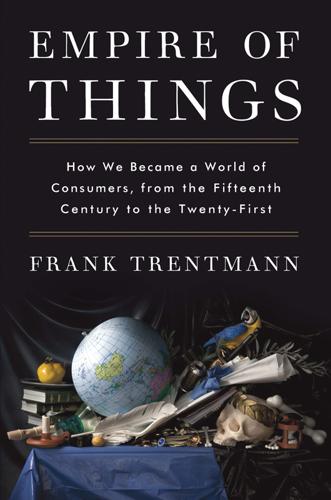
Empire of Things: How We Became a World of Consumers, From the Fifteenth Century to the Twenty-First
by
Frank Trentmann
Published 1 Dec 2015
Attitudinal surveys in the mid-1980s found that most people put their own satisfaction first. Consumer culture seemed to be breeding a nation of individualists. In reality, this was a blip. Already before the bubble burst in 1989–90, the trend of ‘breaking away from things’ and enjoying ‘things other than things’ (mono igai no mono) was under way.79 The post-material search for authentic experiences and happy relationships entered the retail landscape. Tired of technological novelties, customers discovered nostalgia. Seibu department stores opened ‘Reborn Pavilions’ and herbal-medicine shops. The deep recession and ‘lost decade’ of the 1990s that followed reinforced this trend, as shoppers tightened their belts and big corporations cut back on ski-trips and expense accounts.
…
Stewart (department store) 192 AT&T 287 Atatürk, Mustafa Kemal 619 Atlanta, water consumption 177, 187, 188 Atlantic empire 92 Atlantic trade see transatlantic consumption and trade auctions 69, 71, 145, 656 audience research 319 audiotapes 619 Augustine of Hippo 8 Augustus the Strong 88 Austen, Jane 196 austerity 12, 106, 273, 289, 338–9, 390, 539, 610, 612, 675 see also thrift; instant gratification in the midst of 607; and socialism 331, 337 Australia 429, 481, 543, 669, 670; aborigines 450; mortgages 423, 522; outsourcing environmental burden to 669; Productivity Commission 481 Austria 363, 409, 441, 478, 513, 542, 548, 644, 668 authenticity 132, 158–9, 223, 227, 235; the authentic self 96, 100, 235; consumption and inauthenticity 135, 138; in local food 580, 581, 583; post-material search for authentic experiences 384, 685–6; religious 601 authoritarianism 374, 386, 394, 397, 535 see also totalitarianism; antiauthoritarian politics and consumer culture 322; ‘social authoritarianism’ of the radio 266 automobiles see cars avarice 8, 156, 285, 386, 405, 449 Aznavour, Charles 352 Aztecs 78–9, 84 Baader, Andreas 322 baboos 143 Bacon, Francis 84–5 Bainbridge drapers, Newcastle 192 Bakker, Jim 611 Bandello, Matteo 30 Bangladesh 367 bankruptcy 418, 431–3 banks 239, 426; bancarisation of the people 423; Bank of Japan 363; Banque de France 533; children’s 363, 417; Dutch National Bank 563; Federal Reserve bankers 414; German 416; Indian 367; inequality and location of bank branches 432; lawsuit by ADICAE against Spanish banks 558; and private credit 414, 415, 416; savings banks 243, 362, 417, 418, 419; sponsoring of company services 536; World Bank see World Bank Barbedienne, Ferdinand, foundry 225–6 Barbon, Nicholas 98, 100 Barlaeus, Caspar 96 Baroda 380 barter 46, 117, 130, 277, 328, 335 see also haggling Bastiat, Frédéric 117, 151 Bat’a, Tomáš 525 bathing 189–90 bathrooms 178, 179, 189, 221, 238, 242, 248, 307 baths 176, 184, 186, 189, 244, 247; swimming baths 190 Baudrillard, Jean 324 Bauer, Edgar 115 Bauer, Samuel 88 Bauer, Yevgeni 199 Bauman, Zygmunt 520 Bayle, Pierre 102 Bayly, Christopher 138 bazaars 192, 209 BBC (British Broadcasting Corporation) 266 beads 25, 77, 104, 124–5, 574 Beatles 352 Becker, Gary 74, 427 bedding 31, 55, 56, 60, 62, 63, 678 bedroom furniture 30, 31 Beecher, Catherine 247 Beecher, Henry Ward 610 beer 10, 27, 58, 80, 88, 166, 252, 318, 331, 358, 359, 371, 475, 508, 509, 535, 546, 559; 1830 Beer Act, England 476; bottles 636, 647, 661; German 358, 559 Beijing 44, 46, 47, 72, 72, 93, 190–91, 357, 395, 493, 494; Tianqiao market 190, 191, 685 Belgium 120, 148, 534, 547; elderly people 508; fair trade 570; homes 243, 245; household savings rate 420, 421; recycling 644; Sunday restrictions 478 Belize (British Honduras) 170–71, 581–2, 626 Bellamy, Edward 269–70 Belmondo, Jean-Paul 322 Benjamin, Walter 191, 197–8 Bentham, Jeremy 152 Bentley, Thomas 69 Benzoni, Girolamo 78 Berg, Alban 267 beriberi 543 Berlin 155, 156, 168, 179, 187, 189, 207, 295, 307, 328, 477, 479, 549–50, 627, 635–6; elderly people 507–8; Gloria-Palast 211; Horseshoe Estate 222, 223; Kommune 1 (first political commune) 322, 323; Mann family home 251; Tietz 193; Wall 301, 333, 646; water consumption 186, 187; Wertheim 199–200 Bern 156, 470 betel nut 47, 150, 168 Bethmann-Hollweg, Martha von 156 Better Homes and Gardens 377 Betts, Tristram 574 Beverwijk, Anna Nannige 55 Bianciardi, Luciano 350 Bibelot, Le 227 Biermann, Wolf 334–5 Biles, Judith 511 Billington-Greig, Teresa 157 Binèt, René 192 biodiversity decline 604 bird fights 137 biribissi 30 Birmingham 141, 243, 559 Black Death 58 black market 65, 330 see also smuggling Blackpool 210, 220 Blackstone, William 103–4 Blair, Tony 5, 548 Blair government 549 ‘Blondie’ comic strip 378 body: the ageing body 514–15 see also elderly people; bodily humours 84, 85; clothes as an extension of the body 296; hygiene see hygiene; man’s two general wants of body and mind (Barbon) 98; mind–body/matter duality 95, 230–31; smearing 126; union/balance between mind and 101, 246, 397 Boeing 529–30, 532 Bolsheviks 276–7 Bon Marché 191, 192, 193, 194, 199, 204 books 30, 31, 32, 44, 45, 47, 51, 53, 55, 56, 616, 658 see also libraries boot sales 654 Bootle 506 Bormann, Heinz 328 Boston 86, 177, 179, 187; tea party 111 bottle banks 639 Boucicant, Aristide 204 Boulton, Matthew 53 Bourdieu, Pierre 344–6 bourgeoisie 86, 87, 94, 117, 118, 165, 181, 215, 227, 292–3, 311, 345, 374; aspiration 227; Bildungsbürgertum 416; the bourgeois home 250, 251, 345; childhood seen as invention of bourgeois modernity 486; culture of restraint 117, 118, 311; ‘embourgeoisement’ thesis of British working class 342–4; in Paris 225–6, 250, 374; and Soviet material culture 292–5 Bournville 171, 172, 528 Bovril adverts 171 Bow, Clara 281 bowls (game) 506, 529 boycotts 2, 111, 128, 296, 385, 393, 561, 571, 681; anti-slavery 128, 156, 184, 559, 571–2; and apartheid 577; of British goods 268, 297, 299; Chinese consumer boycotts 298–9; consumer jihads 618–19; in Egypt 299; and ethical consumerism 576–7; of gas companies 183; and national products 297–300; of sweat shops/sweated goods 155, 156 Boyle, Robert 97 Bradenton Kiwanis Club 498–9 Bradford 601; Kirkgate Market 207 Brahmins 142, 144, 381 Bramwell, Sir Frederick 185, 188 branding 2, 68–9, 173, 439 see also advertising; labelling; rebranding; American in-school branded give-aways 485; children’s recognition of brands 485; fair-trade 565–6, 570; trademarks 47, 486 brandy 86, 106, 107, 143, 161, 166, 170 Brassens, Georges 180, 351, 352 Braudel, Fernand 9, 22 Bravo 312 Brazil 11, 122, 161, 163, 165, 166, 352, 372, 515, 566, 569; Fordlandia 527, 528; middle class 373; Pentecostalism 613–14; waste management 651 Brazzaville (Congo) 347, 471–2 Bread for the World 577 Brezhnev, Leonid Ilyich 11, 330, 545 bridewealth 370 Brignole family, Genoa 29 Brilliant Earth 567 Britain and the United Kingdom see also England; Scotland; Wales: abolition of, and battle against slavery 121, 122, 123–4, 125, 572; affluence and social transformation 548; artisans 74; bankruptcy 433; and the ‘birth’ of the consumer society 10, 22, 73; British textiles bought in India 139–40; charity shops 654; chocolate drinks 165; church attendance 306, 475, 479, 607; cinemas 212; ‘Citizen Charter’ of Major Government 389; clothes shopping by British women 674; clothing items in 2013 1; coffee consumption 91, 566; Conservatives 308, 549, 554–5, 556, 640; consumer co-operatives 206; consumer complaints 558, 559; and consumer freedom 419–20; Consumers’ Association 551; cotton industry 66, 77, 170; council housing 243, 553–5; credit 409, 410, 412, 414, 415, 416, 423, 424, 426, 429, 430, 431; defence spending 542; demand for British goods 126, 140, 170–71; dematerialization 668; domestic energy consumption 672, 674; domestic interior at centre stage 108; elderly people 506, 507, 509–11, 512; ‘embourgeoisement’ thesis of British working class 342–4; fair trade 562, 564, 565, 566, 577–8; food banks 338–9; foreign boycotts of British goods 268, 297, 299; free time activities of men and women aged 20 to 74 (1998–2002) 458–9; and free trade 91, 120–21, 136, 140, 141, 163–4, 572; GDP 12, 423, 668; health support groups 555; as high-wage economy 99; home-equity loans 429; home ownership 236, 245; home size 675; household cultural spending 548; household debt 409, 425, 426–7; household goods spending 554; household waste 1980–2005 643; household wealth 426; imports from West Indies 161; income share of the rich 436, 437; increase in possessions during 17th and 18th centuries 23; Insolvency Act (1986) 431; Keep Britain Tidy Group 639; Labour Party see Labour Party, UK; leading place in post-war consumer culture 475; leisure hours 451; liberalism and home decoration 226; luxury debate 99–100; marketing boards 319; material flow 668–9; middle class and the state 548; middling sort 65, 73; mobile phones 464; mortgages 242, 420; municipal waste 622; National Consumer Council 551, 560; New Labour 548, 549; NHS see National Health Service; Ombudsmen 557; online shopping 482; outsourcing environmental burden 669; over-indebtedness 431; people outside world of finance 432; and politeness 109; post office savings 418; public services and choice 561; rag trade 628–9; reading habits 354, 461; recycling 639, 640, 645; sabbatarianism 476; salvage 637–8; savings 418–19, 420, 421, 430; servants 58–9; silk export 67; social spending 537, 539; socializing 461; solo living 654; state help for industry 65–6, 77; sugar consumption 91, 165–6; supermarkets 349; and tea 60, 61, 65, 75, 79, 81, 90, 91–2, 162, 165; teenage market 495; Tenant’s Charter 555; Thatcher government 640; Total Material Requirement 668; trust in food system 584; as unequal society 73; urban density 93; Victorian Britain see Victorians; wages 71–2, 75, 99, 115, 146–7, 281; waste generation lowering 640; waste incinerators 632; water meters 188; Women’s Co-operative Guild 157; working class spending power 281; working hours 449; youth spending power 281, 485 British empire 11, 91, 162, 307; and American trade 164–5; and anti-colonialism 296–8, 299, 379–80; ‘Buy Empire Goods’ campaign 300, 572–3; by-laws 141; and coffee 79, 91; colonial tea plantations 79; Egypt under British occupation 300; Empire shopping weeks 300, 572; flow of goods and slaves (1770) 82–3; Imperial Postal Order Service 590; India and the Raj 137–46, 296–8; Indian legacy 379; industrial superiority 120; and investment 160; as liberal free-trade empire 120–21, 140, 141, 163–4; naval power 120; and remittances 590; taxation 121, 139, 141, 161–2; unease with the African consumer 136; Western goods and colonial identity 131, 132 British Honduras (Belize) 170–71, 581–2, 626 British Museum 477 Broadway 212 Brook, Timothy 96 Brown, Gordon 428 Brussels 192, 648 Buarque, Chico 352 Budapest 193, 275, 630 Buddha 612 Buddhism 385, 390, 472, 607, 613, 615–16 budget studies 147–50, 283 Buenos Aires 80, 181, 193 Bulgaria 327, 672 Burckhardt, Jacob: The Civilization of the Renaissance in Italy 30 Burgundy 69 burials 51 see also funerals Burkina Faso 591, 592 Butler, Richard 133 Buxton, Thomas Fowell 127 buyers’ leagues see consumers’/buyers’ leagues BVB Dortmund 563 C&A 479 Cabanagem Rebellion 163 Cadbury 128, 167, 171–2, 528, 563, 568 caffeine 80, 88, 166 see also coffee Cairo 23, 80, 174, 202; Au Petit Louvre 204; bourgeois homes 251; Fire (1952) 300, 322; University 299 Calabria 302, 586, 598 Calcutta 137, 143, 144–5, 602 calico 65, 77, 124 Calvelli-Adorno, Maria 267 Calvinists 57, 58, 614 Cameroon, French 132–3 Campbell, Colin 290 Canada 247, 253, 420, 425, 431, 540, 572–3, 681; Sunday trading and deregulation 476, 478 candy stores 217, 219 canning industry 638–9 cantautore 352 Canton 89 capitalism 3, 4, 22, 27–8, 95, 157, 160, 174, 444, 649; and animism 385–6; Chinese state capitalism 680; consumerism and democracy as one package with 273; consumption as capitalist subliminal weapon of domination 321; credit and consumer capitalism 409; department stores as children of 191; finance capitalism 119; inter-war crisis of 279; Marxist critique 112–13, 385; private versus state 288; welfare capitalism 523, 525, 529 Cappello, Domenico 29 Capron, Illinois 661 Caracas 80 carbon emissions 2, 15, 538, 647, 666, 667, 675; embedded carbon and ecological footprint 15, 675, 686, 687, 689 Caribbean 79, 123 Carlos, Roberto 352 Carlyle, Thomas 455 carpets 55, 57, 117, 138, 145, 146, 194, 205, 224, 225, 226, 330; Turkish 23, 30, 96 Carrefour 349, 371 cars 14, 217, 247, 248, 302–3, 315, 322, 324–5, 326, 426, 442; American sales 279, 281, 428; boot sales 654; car-sharing 654, 656, 687–8; with catalytic converters 653; in China 355; democratization of the car 301; dependence on the car 340; in East Germany 330, 331, 332, 335, 336; and emotions 686; free time spent in 460; in India 366, 382; and Italian culture 324; life expectancy 658; motoring cult in America 544; and platinum 653; repairing 659; second-hand market 658; Trabant 331, 335, 337 Carson, Rachel 639 cartels 278 Carter, Jimmy 325 Caruso, Enrico 263 Cary, John 99 caste 143–4, 298, 315, 381–2 Casteldurante 30 Castellani, Francesco di Matteo 34 Castellani, Lena 34 Catalonia 75–6 Cavill, Frederick 167 celebrity culture 435 Celentano, Adriano 311 cement making 667 censorship 312 Central America 80, 334 central heating 15, 244, 244, 302, 339, 673, 687 ceramics see pottery/ceramics Certeau, Michel de 5–6, 324 Cetelem 411 Ceylon see Sri Lanka/Ceylon Chagga tribe 135 Champagne 169 chandeliers 117, 146 Chang, Eileen 359 Chanukah 615 charity 541; Christian charities 656; shops 574, 624, 654, 657; transition from charity to trade justice 574–5 Charlottenburg 631 charter flights 301, 533 Chase, Stuart 287 Chaves, Lorenzo 193 Chekhov, Anton 204 Chen village 595, 596 Chen Yao 47 Chengdu 398 Chèques Vacances 533, 536 Cheyne, George 106 Chicago 177, 194, 215, 239, 505, 526, 602; Golden Age Club 503; World Fair (1893) 249 Chicago Defender 488 Chicault, Denise 496 chicory 81, 86–7, 166 Chifuren 393 Child, Lydia 405 child benefits 538 children: adult control and regulation 492; American Children’s Charter (1929) 487; anxieties over loss of childhood 490, 492; brand recognition 485; and candy stores 217; child-rearing 487; childcare 259, 331, 448, 453, 454, 456, 469, 521, 543, 612; childhood seen as invention of bourgeois modernity 486; children’s banks 363; Chinese 368–9, 493–4; and choice 488, 491–2; clothes 486–7; cognitive development and toys 231; commercial power 312, 485, 491–2; commercialization of childhood 484–94; as consumers 216–17, 484–94; corruption of innocent girls 199; and credit 485, 491; debt to peers 491; family time spent with 461; fashion 485, 486–7; in Germany 491, 493; groomed for profit 485; juvenile protection laws 311; and leisure 451; market research roles 485; pocket money 370, 383, 488, 493; poor children 490–91; rights of 487, 488; selling of 408; spending power 312, 485, 491, 493; stalked for profit 485; and the street 217; summer playground programmes for 219; targeted by marketing and advertising 485, 487, 489–90; teenage see youth and teenagers; television 489; toys see toys; working 133, 156, 287, 485, 490 Chile 80, 170 Chin, Elizabeth 491 China: and the Americas 23, 128, 299; artisans 44, 47; attitude to things 95–6; authoritarian regime’s use of consumption 386–7, 394, 397; beer market 371; Buddhist revival 607; building boom 376; children 368–9, 493–4; chinaware production and shipping 88; Chinese labourers in Hawaii 149; clothes 359, 360, 368; collectives 369, 376; Communist Party 372, 374, 376, 386–7, 394, 398; Confucian revival in Communist Party 386–7; consumer activism and politics 298–9, 394–8; Consumer Association (Zhongguo Xiaofeizhe Xiehui) 396, 397; consumer protection/rights 387, 394–7; consumption 51, 355, 359–60, 368–70, 371, 372–3, 394–8, 681; cosmetic revolution 360; cotton 44, 46; Cultural Revolution 377; disposable income 368, 374; domestic appliances 368; education 372; electronic waste 653; Europe’s race ahead of 122; farmers 44, 47, 73; fashion 21–2, 44, 46, 47, 49, 69; and the First World War 299; GDP 24, 357; Grand Canal 44; Great Leap Forward 376; home decorating 376–7; industrialization 376; inequalities 368, 371, 374, 438; investment driving economy 372; Japanese trade with 23, 47; leisure 472; luxury brands 439; Maoist see Maoism; merchants 24–5, 44, 47, 48, 49, 51, 52–3; middle class 373, 374; Ming see Ming dynasty; National Products movement 299; nationalism 298–9; non-wage benefits 535; opium 110; outsourcing environmental burden to 670; peasants 46, 47, 49, 73, 359–60; personal debt 372; pollution 355; privatization 375–6; Qing 48, 49, 52, 110; rapid growth 11; remittances 595; revolution of 1911 190; running water 179; savings 426, 438, 681; selling off state housing 375–6; shopping 190–91, 371; and silver 25–6, 46, 90; standard of living in Lower Yangzi 71; state capitalism 680; storage 660; and sugar 91; tea-drinking 80; television 368, 374, 472; thrift 368; trade 23, 24–6, 44–7, 88, 92; urban density 93, 174; urbanization 607; welfare 681; Western dress and goods 359–60; Western picture in late 19th century of 43; women 52, 369–70; WTO entry 396 china 60, 61, 88–9, 90, 108, 195, 356, 383; merchants 109; porcelain see porcelain; shops 93 chintzes 64–5, 67, 74, 124, 145, 252 chocolate 4, 77, 78, 80, 84, 85, 163, 165, 166, 167, 172, 292 see also cocoa/cacao; advertising 172; drinks 165; Ferrero Rocher 611; ‘military’ 167; parties 78; and the Soviets 293; from vending machines 278, 370 choice 5, 226, 303, 308, 488, 548–61; and the ‘68ers’ 323; and affluence 12, 303, 403, 548–61; in American culture 5, 288–9, 553, 556–7; architecture 688; and children 488, 491–2; and company leisure activities 528; constrained by slavery 132 see also slavery/slaves; and consumer/social change 5–6, 688–90; consumer choice that also stands up for the poor 390; and consumption 9, 216, 273, 289, 372, 390, 403, 522, 688–90; consumption as neo-liberal story of markets and 273, 403, 522; and creativity 503–4; and credit 413; Dewey’s blend of democracy, pragmatism and 288–9, 504; and empowerment 288, 557, 559, 560, 567; England in 18th century as model of 10; and fair trade 563, 566–70; framing of 6; in healthcare 556–7; in inter-war years 288–9; of Japanese consumers 372; marketplace choice creating stronger citizens 289; neo-liberal diktat of 273, 403, 522; political/moral defence of 5; and public services 548–61; and responsibility 560; and a shift in values 289; and social welfare 391; and the supermarket 348, 350, 522; trust and ambivalence about consumer choice 216; and the vote 156–7; as way to rebuild post-war family and nation 308; women’s right to choose 309 cholera 177, 178, 633 Chorley, Alexander 88 Christian Aid 576, 577 Christian Broadcasting Network 611 Christian Democrats 308, 316 Christian religion and Church: affluence, consumer culture and 606–15; Calvinists 57, 58, 614; Catholic Church 308 see also Jesuits; missionaries: Catholic; Christian charities 656; Christian trade unionists 275; Christian youth 574–6, 613; Church as consumer 174; church attendance 306, 475, 477, 479, 606, 607, 608; Church of England 612; Church of Scotland 308; churches offering social and community services 612; commercial culture used by 607–13; cultural elites replacing position of the Church 284; and debt 405; decline of organized Christianity 306–7; Dominicans 84; England as missionary nation 126; and ethical consumerism 573–6; evangelical see evangelicalism; immanentism 609; Jesuits 80, 84; lust and original sin 8; and luxury 36, 118, 610–11, 614–15; materialism as threat to Christian civilization 306, 609; mega-churches 610, 611–12, 614; Mennonites 574; Methodists/Wesleyans 133, 612; missionaries see missionaries; non-churchgoing people defining themselves as Christian 612; Orthodox Church revival 607; Pentecostalism 607, 613–14, 615; and possessions 36, 57, 306, 609; Presbyterians 384; prosperity gospel 610–11, 615; Protestant revival in China 607; Puritanism see Puritanism; Quakers 128; Redeemed Christian Church of God 614, 615; Reformation 1; science, evolution and faith crisis 609; secularization and loss of faith 607; and social control 42–3; spiritual rebirth and material changes 126; and Sunday see Sundays; and syncretism 613; televangelism 610–11 Christian Social Union 155 Christmas 134, 280, 489, 576; bonuses 523, 526; cake competitions 300; Empire Christmas pudding competition 161; presents 432, 491; shopping 156, 477, 529, 574 Chrysler 635 Church see Christian religion and Church Church Missionary Society 126 Church of England 612 Church of Scotland 308 Ciao amici 312 Cicero 35, 36 cigarettes 135–6, 278, 291, 311, 334, 361, 381, 494, 509 Ciné-Journal 214 cinema 211–15, 217, 221, 281–3, 378, 467, 685 see also film; air-conditioning 341, 348; Americanization through 282–3; Bat’a’s 525; black movie theatre 215; and class 211, 214; corruption through 216; dioramas 213; in East Germany 328; feeding aspiration 282–3, 301–2; Hollywood 211, 348, 351; in Iran 616, 617; kinetoscopes 212; magic lanterns 213; panoramas 213; in shopping centres 215; Soviet 292–3; travelling cinemas 212, 296, 365 cisterns 178, 180 Citibank 423 cities and urban life see also specific cities: African cities, social identities and consumption 347; and anonymity 94; British ideas of urban living imported to India 141; budget city-breaks 689; capitalism powered by cities 174; change in Asian cities 359; cinemas see cinema; cities as billboards for consumer goods 481; cities as providers of public consumption 183; and consumption 93–4, 174–221, 347; department stores see department stores; entertaining spaces 210–21; European ambivalence towards 210–11; and flâneurs 194, 310, 441; gas supply and consumption 176, 180–83; gated communities 392; global modernization 249; and impact of broadening consumption on harmony between things and humans 197; impact of urbanization on religion 196; impact on relationships between individuals and social groups 197; in India 141, 392; market halls 207–8, 209; and privacy 94; promotion of higher standard of living 688–9; with radio clubs 264; sewage disposal 178, 179, 180; shopping 190–210 see also shopping; suburbs see suburbanization/suburbs; transformation 1850–1920 174–80; urban density 93, 174; urbanization 23, 29, 174, 196, 356, 368, 517, 607; utility networks 175–6, 180, 181, 183, 188–9, 220, 248; water consumer movement 183, 184–5; water supply and consumption 176, 177–80, 182, 183–5, 187, 187; women’s growing visibility 196; work leading to creation of 97 citizenship, consumer 184, 287–8, 356, 389, 680, 690; choice in the marketplace creating stronger citizens 289; the citizen-consumer 3, 154–5, 157, 160, 356, 628, 690; ‘Citizen Charter’ of Major Government 389; and civic consumerism/progressive individualism 237–8; climate change and the consumer as citizen 560; and complaints 558–9; consumer activism and the relationship between state and citizen 557–9; and credit 411, 412–13; eco-citizens 639; the European ‘market citizen’ 559; and protection see consumer protection; protection of ‘service to the citizens’ 389; and rights see consumer rights; and social citizenship 157, 278, 682 citizenship, post-war cultivation of 496 citizenship, rights and duties of 356 Cittaslow 442, 470 civic humanism 33, 96, 99 civil rights activism 324–5 civil servants 416 civil society 87, 101, 109, 356–7, 390, 393, 648 class see also aristocrats/gentry; bourgeoisie; elite; middle classes; upper classes; working classes: and affluence 303, 316, 339–48; approach to money and goods 342; bias and prejudice 415, 416; Bourdieu’s nexus of culture and 344–6; caste 143–4, 298, 315, 381–2; and the cinema 211, 214; classless cabins 291; and coaches 40; and credit 423–4; and cultural poaching 347; department stores and class relations 197; diets, eating and 587–8, 604–5; and domestic technologies 259; and dress codes 40; and drinking habits 164, 340; fears 313; and food 165; hierarchies 5, 40, 305, 313; and leisure 455, 466, 468–9; loosening of class hierarchies amongst the young 313; and mass culture 315; and place in production system 381; and the polarization of time 450–51, 468–9; the poor as the new leisure class 449; the rich as the new working class 449; Second World War and the destabalizing of hierarchies 305; and shopping 350; snobbery 415; in the Soviet Union 294–5; and taste 79, 108–9, 226, 304, 344–6, 436–8, 548; and television 346; war 313 cleanliness 4, 177–8, 226, 245, 527 see also hygiene; cleaning and looking after the home see housework; and domestic technologies 252–3 see also vacuum cleaners; washing machines Cleveland 217, 218 climate change 560, 666 Clinton, Bill 395 Clive, Robert (Clive of India) 137 clocks 26, 49, 56, 60, 61, 62, 62, 129, 222, 359; cuckoo 193; prayer 618 clothes 4, 10, 34, 41–2, 56, 378 see also fashion; adoption of European clothes by Africans 4, 129, 130, 132, 136; adoption of Western clothes by affluent Indians 143; age-specific 486–7, 494–5; American menswear 315; and anti-colonialism 296–8, 299, 347; of Bengali women 142–3; Britons prohibited from wearing Indian dress 143; children’s 486–7; Chinese 359, 360, 368; clothing revolution, 18th century 67, 68, 73–4; codes of dress 40; cotton see cotton; counter-cultural 323; Egyptian 299–300; and emancipation 132; and emotions 686; evening dress hire 682; as extension of the body 296; fair standard of clothing requirements, Philadelphia 150; falling cost in era of high imperialism 146; freedom of dress 111; fur-lined 37; Gandhi and Indian clothes 296–8; home-made 24, 332; hybrid 64, 143, 299; and identity 94, 296–8; Indian cottons 4, 10, 23, 24; and individuality 315; items of clothing in UK (2013) 1; Japanese 358, 359; jeans see jeans; Karo desire for Western clothes 142; legislation 39–42; leisure 201; mass-produced 59; and the meeting of the private and public spheres 296; menswear 200–201, 315; Muslim dress 130, 617, 618, 619, 620; national dress 297–8, 299–300; and national identity 296–8; paper dresses 636; Persian 146; post-baptismal 126; practical 345; Punjabi peasant 361; ready-made 94, 203, 487; school 497; second-hand 68, 71, 190, 312, 629, 652, 656–7, 658–9; and self-alienation 100; sensitivity of clothing as article of consumption 67; serfs’ 203; servants’ 21, 22, 67, 68, 73–4; shoes see shoes; shopping by British women 674; silks 23, 31, 36, 39, 41, 42, 47, 48, 51, 58, 140, 293, 294, 299; skirts 21; sleeves 21, 37, 43, 69; and social positioning/status 13, 39, 41, 94; sportswear 201, 320; stockings see stockings; students’ 495; Venetian 37; waste 622; woollen see wool; working-class 68; young people’s 312, 494–5, 498 Club of Rome 325; Limits to Growth 324, 639 Clunas, Craig 50 co-operative movement 155, 156, 275, 277, 285, 308; co-op shops 205–7; co-operative finance 206; and fair trade 578, 579; International Co-operative Alliance 207; International Trading Agency 573; Russian co-operatives 277; women on co-operative boards 579; Women’s Co-operative Guild 157 coaches, horse-drawn 40 coal 59, 71, 94, 122, 147, 153, 182, 629, 666, 683; ash 624, 628 Coca-Cola 307, 582, 618; bottles 637 cocktails 462 cocoa/cacao 24, 78–9, 80, 81, 84, 131, 163, 168, 678 see also chocolate; advertising 167, 171–2; butter extraction 167; evolution into mass-produced national commodity 167; fair-trade 568; and health 167; Javanese 164 coffee 4, 10, 27, 78, 79, 80, 81, 84–5, 86–8, 90–92, 163, 167, 168, 566–7; advertising 172–3; America and 92, 165, 173, 566; and the armed forces 166–7; breaks 166; British consumption 91, 566; chains 562–3, 579; cups 87, 88, 125; Dutch consumption 79, 87, 164, 164; English consumption in 1724 81; fair-trade 562–3, 566, 575, 576–7, 579; and the French 79, 165, 166; Germany and 166, 172; global expansion of ‘Italian’ coffee 173; houses 79, 86; and industrialization 166; Japanese consumption 165; Kenyan 573; picking 579; premier league of drinkers, eve of First World War 164, 164; and the slave trade 91; substitute 81, 166; sugar in 90; taxes 86, 91–2 Cohen, Lizabeth 5 Cold War 272, 273, 546, 573; and the battleground of leisure 329; and geopolitics 300–301; and the ideological battle over affluence 300–337; and social spending 542 collars, removable 21 collecting 50, 52, 96, 137, 138, 145, 227, 231–2, 270 Collection for Improvement of Agriculture and Trade 98 collective bargaining 156, 343 collectivism/collectivization 245, 277, 331–2, 343, 369, 376 Collegiate Special Advertising Agency 494 Cologne 208, 219, 319 Colombia 163, 170, 651 colonialism 4, 61, 90, 132–3 see also imperialism; anti-colonialism see anti-colonialism; British Raj 137–46, 296–8; colonial customs zone 162; colonial elite 80; colonial food chain 128; colonial nationalists 274, 296–8; colonial tea plantations 79; consumption control for subjects 121; decolonization 596; and dislike of natives 173; domestication of colonial space 171; empire writing out the colonial producer 173; and imperial tug of war 120; and inequality 161; setting up home in the colony 144–6; and slavery see slavery/slaves; Spanish 64; and Third World visibility 576; and tropical production 78–9, 80, 90, 91, 162–3; and waste disposal 633; Western goods and colonial identity 131 Columbia Phonograph Company 263 comfort 4, 21, 110, 270–71, 281, 677; and credit 412; culture of 68, 108, 246–7; and decency 228, 246; domestic see domestic comforts; and emotions 270; functionalist 249–50; goods 455; and the heart 226; Hoover on 237–8; house architecture and the culture of 246–7; ‘innocent’ and ‘modest’ comforts 363; mass comfort 227; material comfort 237, 290, 309, 334, 369, 484, 520, 596, 615; and the nurturing of character 238; and politeness 30; and the public good 32–3; and safety 226; and selfalienation 100; and trade-offs 61; Western comforts as obstacles to salvation 125–6 comités d’entreprise (CEs) 532–3, 534 commerce see also company services, and corporate-led consumption; retail trade; trade: American corporations styled as mini-democracies 287; children’s commercial power 312, 485, 491–2; clash with custom 38; commercial culture used by religion 607–13; commercial leisure see leisure; commercial waste 642; commercialization of childhood 484–94; and the convergence of consumption and citizenship 287; countryside commercialization 49; Dutch 26; e-commerce 481–2, 654, 658; effect of rise of commerce on consumption 24; expansion, and ‘tasteful objectivity’ 96; global commerce and the ethic of care 573, 584; identity crisis with rise of industry and 269; Ming China’s commercialization 44–8, 49; production see production; rise of 24; self-expression as bridge between arts and 315; shift towards Atlantic world, late 17th century 26–7; shopping see shopping; silver as lubricant of 25–6; spread of customer service into 558; wealth of commercial society 103; widening channels of 24 commodification 28, 266 Commonwealth Steel 527 communes 182, 321, 322, 323, 537 communication 94, 301, 471, 685 see also mobile phones; radio; social networking; television; EU government expenditure on 538; ICT see information and communication technology; speed 442 communism 7, 16, 245, 246, 274, 289, 292–6, 327–37, 396–7 see also Bolsheviks; Maoism; Marxism; Soviet Union; Stalinism; co-operation with the consumer in China 397–8; communist elite 294–5; Communist Party of China 372, 374, 376, 386–7, 394, 398; French 307; and waste 331, 644–6 community-supported agriculture (CSA) 580, 588 commuting/commuters 14, 200, 340, 454, 457, 685, 686 Compagnie Parisienne de l’Air Comprimé 183 company leisure activities 525–36; mobility and the firm’s loss of control over 528–9; and recreational facilities/finance 525, 526–31, 535–6; sport 456, 523, 525, 526, 527, 531, 533, 534; and ‘wellness’ strategies 513, 530–31 company services, and corporate-led consumption 523–36; collective consumption in company towns 524–8; food 524–5, 531–2; health and welfare 513, 523, 525, 529, 530–31; housing 457, 523, 526, 528, 534; Japanese perks 534; and leisure see company leisure activities; mutation with Second World War 529; pension funds/plans 500, 523, 528; and privatization in Eastern Europe 535; sponsors of company teams 536; stores 524–5, 528 company towns 524–8, 534 complaining 558–9 computers 2, 465, 467, 674, 686; used 652, 653, 658, 660, 662, 663, 664 conceptual artists 636 condominiums 674 Condulmer, Elisabetta 32 Coney Island 219, 220 conformism 226, 314, 315 Confucianism 48, 51, 386–7; neo-Confucianism 386–7 Congo (Brazzaville) 347, 471–2 connoisseurship 52 conservatives 112, 159, 196, 240, 245, 301; 1950s as a conservative restoration 309–10; and affluence 307–8; British Tories 308, 549, 554–5, 556, 640; and choice 308; Christian 306; embracing consumer sovereignty 314; family-oriented consumerism 324; working-class conservatism 344 conspicuous consumption 13, 15, 227–9, 438–9, 677; in Asia 139, 383, 384–5; checked by authoritarianism 374; conspicuous underconsumption 303; family-oriented 383; as moral threat 380; and the Rajput 362; and TV evangelists 610–11; and waste 15, 144 consumer activism 157, 159–60, 571, 681 see also consumer movements; of the ‘68ers’ 321–3; in the 1930s 274; in Asia 393, 394, 395–8; boycotts see boycotts; fair-trade 567, 570–71; before First World War 274–5; in healthcare 555–7; and leagues see consumers’/buyers’ leagues; and litigation 395–6; and the relationship between state and citizen 557–9; and scarcity 393; and transition from charity to trade justice 573–7; water consumer movement 183, 184–5 consumer boom, post-war see consumption: boom of 1950s and ’60s consumer centres 394 consumer citizenship see citizenship, consumer consumer clubs, in Indian schools 390 consumer co-operatives see co-operative movement consumer culture 21–77 see also material culture; and the ‘68ers’ 321–4, 327; and the abolitionists 128; of affluence see affluence; Africa and empire 124–36; ambivalence towards 104, 121–2, 216, 307; and the American dream 237–8, 283, 340; Americanized see Americanization; and anti-authoritarian politics 322 see also anticolonialism; Asian 357–99; assumptions about traditional versus modern consumers 360; of austerity see austerity; and boycotts see boycotts; Britain’s post-war lead in 475; and Cartesian duality 231; celebrity culture 435; the child consumer 216–17, 217, 484–94 see also children; and choice see choice; Christian see Christian religion and Church; and the city see cities and urban life; civic consumerism/progressive individualism 237–8; of comfort see comfort; consumer as king see consumer sovereignty; consumers considering themselves as a mass 198; contemplative 52; of credit see credit; cult of antiquity 4, 50, 53, 227; and cultural capital 50, 52, 466, 470; democratic advance from elite to bourgeois to mass consumption 136; ‘depression phobia’ 342; and desire see desire for things; discovery of the consumer 129, 146–60; and disenchantment see disenchantment; of domestic comfort see domestic comforts; domestic consumer revolution 222–71; of domestic hygiene and cleanliness 252–3 see also cleanliness; hygiene; Dutch 53–8, 56; in early 1970s 324; early modern north-west Europe 53–63, 65–6, 70–77; energized by the home 375; and the Englightement 95–110, 231; English 58–63, 61, 62, 65–6, 71–2, 76–7; ethical consumerism 128, 155–7, 565–80 see also fair trade; European fears of invasion of American 305–6; and exotic drug foods 78–93 see also cocoa/cacao; coffee; tea; tobacco; First World War and consumer identity 275–6; and generations see generations; hybrids 11, 138, 143, 246, 312, 349, 358, 482; and identity in India 380–81; of improvement 105–10; India and the Raj 137–46, 296–8; inequalities see inequalities; of instant gratification see instant gratification; and Islam 616–21; Japanese 358, 383–4, 386; Latin American 170; leisure see leisure; as lightning rod for anxieties 305; luxuryorientated 28–38; male craft-consumer and home-centred culture 261, 262; and the middle class 340; Ming China 43–53, 57 see also Ming dynasty; and modernity see modernity; Mughal empire 137, 138; nationalism and consumerist modernity 298; nationalism and mass consumer culture 167; organized consumers’ contribution to nationalism 297–300; patriotic consumers 238; pursuit of novelty 4, 49, 51, 53, 330, 405, 496, 623, 661 see also novelty; and radical culture 322–3; and the relationship between generations 520–21; and religious experience 612–21; Renaissance Italy 28–38; revolution and reaction 111–18; and romantic revolution in China 369–70; selfish see selfishness; shaped by the way people use things 681; socialist 326–37; society of abundance see abundance, society of; Soviet warnings about 324; of style over substance 47; the teenage consumer 494–8 see also youth and teenagers; of thrift see thrift; the traditional but modern consumer 362, 373–87; urban see cities and urban life; Victorian 161; and waste see waste; the West’s embrace of the consumer 173; ‘wholesome consumer lifestyle’ 363; women as civilizing consumers 110; women’s centrality in familial consumerism 308; ‘work–spend cycle’ 444 consumer detriment 549 consumer durables 246, 253, 260, 336, 412, 419; changing family life in Asia 383; consumer ambivalence in attitudes to durability 657–8; and the elderly 510; electric labour-saving appliances see domestic appliances and technologies; furniture see furniture; for home entertainment see gramophones; radio: sets/receivers; television: sets; for ICT see computers; mobile phones; and social spending 542; Soviet 327; and status 260; and tax credits 309; vehicles see cars; mopeds; and women’s enslavement 254 consumer education 393–4 consumer groups 390–91, 392, 393, 551; forums 389 Consumer Guidance Society of India 390 consumer guides 66 consumer magazines 70–71, 200, 253, 305, 310, 312, 377 see also women’s magazines consumer movements 16, 552, 553, 555, 559, 680 see also consumer activism; in Asia 392–3, 394–8, 552; water consumer movement 183, 184–5 consumer politics see also citizenship, consumer: activist see consumer activism; consumer movements; and the adaptability of consumption 680–81; anti-authoritarian politics and consumer culture 322; Asian 393–8; consumer leagues see consumers’/buyers’ leagues; consumer protection and rights see consumer protection; consumer rights; and the Depression 278–88; exotic fashion and antiestablishment politics 323; during First World War 275–6, 363; geopolitics see geopolitics; German 275–6; and the ideological battle over affluence 274–326; and markets 9, 680; and movements see consumer movements; and public services 391; Russian/Soviet 276–7, 294–5; social bargains between states and consumers 278; and socialism 276–7; water consumer movement 183, 184–5; and water rates 183–4, 188 consumer power 356, 388, 567, 572, 584 consumer protection 152, 155, 286, 387, 388, 389, 390–91, 393–7, 550–53, 558–9, 567, 586 see also consumer rights; and Ombudsmen 557–8, 559; Portuguese Association for Consumer Protection 558; and protection of their services 389; Single European Act 559; UN Guidelines (1985) 552 consumer rights 155, 184–5, 387, 388, 389–90, 394–5, 550–51, 552, 553, 680 see also consumer protection; and complaining 558–9; in healthcare 555–7; World Consumer Rights Day 550 consumer society see also consumer culture: 1968 attitudes to 321; of affluence see affluence; America as model of 10, 273, 307; Asian transitions to modern consumer societies 355–99; Baudrillard’s critique of 324; ‘birth’ of 10, 22, 73; conservative restoration in 1950s 309–10; empowerment of the consumer 6, 203, 260, 287, 288, 295, 557, 559, 560, 567; German 307; label 679–80; releasing the individual 325; and security 307; theories of zero-sum relationship between leisure and work 449; as way of life 302, 305–6, 680–81 consumer sovereignty 152, 285, 288, 314 Consumer Unity and Trust Society (CUTS) 390–91 consumer welfare see welfare ‘consumerism’: and anti-advertising 315; civic consumerism/progressive individualism 237–8; ‘consumer revolution’ 22; consumer society see consumer society; ‘consumerization’ of public services 548; consumers as 1930s’ point of reference 285; consuming as spiritual 386–7; critiques of 5, 7, 109, 227, 304, 677; culture of see consumer culture; debt and reckless/excessive ‘consumerism’ 406–7, 428, 431; domestic technologies and the escalator of 258; ethical 128, 155–7, 565–80 see also fair trade; fair-trade products as ‘mere consumerism’ 565; family-oriented consumerism adopted by conservatives 324; Gandhi’s anti-consumerism 296–8; hollowing effect of 109; inbuilt obsolescence as engine of 258; and instant gratification see instant gratification; John Paul II’s attack on 606; as a life stage 281; and the Nazis 290–92; and obsession with economic growth 677; as one package with democracy and capitalism 273; Red 294; as totalitarianism 5, 7; transatlantic debate over destructive effects of 302; working class culture, Labour party and private consumerism 343–4 consumers’/buyers’ leagues 155, 156, 183, 184, 185, 287, 559; shoppers’ leagues 275, 549–50 Consumers’ League, New York 156 Consumer’s Research (CR) 287 Consumers Union 276 consumption: and acquisition 4; adaptability of 680–81; African consumption and empire 124–36; as agent of change 9; aggression abroad and underconsumption at home 158; alienation through 230; Asian rise in 355–99; authoritarian use of consumption in China 386–7, 394, 397; boom of 1950s and ’60s 10, 12, 317, 325, 338, 344, 359, 411, 415–16, 435, 540, 541, 554, 603, 659; as capitalist subliminal weapon of domination 321; the child consumer 216, 217, 484–94 see also children; Chinese 51, 355, 359–60, 368–70, 371, 372–3, 394–8, 681; and choice 9, 216, 273, 289, 372, 390, 522, 688–90; and Christianity see Christian religion and Church; and the city 93–4, 174–221 see also cities and urban life; as a civic project 278, 300; and civil society 87, 109, 356–7, 390, 393; coffee, annual consumption 81, 91; collective consumption in company towns 524–8; as a collective endeavour 278; conscientious 552; conspicuous see conspicuous consumption; control for colonial subjects 121; corporate-led see company services, and corporate-led consumption; as creator of value 3, 151, 233; on credit see credit; cultural consumption with public support 546–7; culture of see consumer culture; current levels of household consumption 687; and debt see debt; defended as source of wealth 54; as a defining feature of our lives 1; and desire for things 96–7, 98, 99, 100–101, 102, 154, 285, 340 see also desire for things; discovery of the consumer 129, 146–60; domestic consumer revolution and home as place of 222–71; domestic technologies and the escalator of 258; eating see eating; economists’ approach to 119, 147–54; effect of rise of commerce on 24; and efficiency 672–5 see also efficiency; the elderly consumer 429–30, 498–519 see also elderly people; of energy 325, 672–3, 674; and the Enlightement 95–110; equality and emulative consumption 438; in era of high imperialism (1870s–1890s) 146–7; ethics see ethics; familyoriented consumerism and 260, 324, 340–41, 382–3; framing of 11–12; and freedom 289, 325, 419–20; gas 176, 180–82; generational see generations; geopolitical approach to global consumption and the imperium of things 119–73; as the glue between generations 520–21; and habit 234; ‘hidden’ 539; and ICT 686, 687; and identity see identity; ideologies and the harnessing of 273–337; and inauthenticity 135, 138; Indian 355, 357, 365–7, 379–82, 390; as indicator of national power 153; and individualism 9 see also individualism/individualization; inequality and over-consumption 434–5; as integral part of social system 324; inter-war 273–4, 278–300; interplay of flow of goods, imperial power and 120; Japanese 355, 359, 362–3, 364–5, 371, 372, 383–4; and the joy of longing 290; and leisure 228, 456–73; liberal champions of 5, 102, 117; and man’s enslavement of woman (Veblen) 228; markets see markets; Marxist critique 112–13; mass see mass consumption; Mill on 151; missionaries and the demotion of the consumer 134; monopolized by husbands 43; and multi-tasking 471, 689; and national/historical economics 116, 153, 154; as nationalist piston of growth 364; under the Nazis 11, 289–92; as neo-liberal story of choice and markets 273, 403, 522; OECD domestic material consumption in 2010 683; outside the marketplace 522–61; overeating 106–7, 339; as part of labour exchange 59–60; pendulum of 78–118, 678; pleasures of see pleasures of consumption; and politeness 30, 107–8; politics of see consumer politics; private 13, 177, 253, 326, 331, 372, 429, 456, 538–42, 544, 548, 681; private affluence helped by public consumption 373; progressive/social democrat critics of 5; public see public consumption; as public policy 121; and religion see religion; reproductive/technical 153; responsible 442, 682 see also sustainability; and the retail trade see department stores; retail trade; shopkeepers; shopping; shops; supermarkets; rising levels of 1, 13, 14, 105, 146–7; rival bourgeois and youth culture styles of 311; Roscher on 116; save and spend model 362–4; seesaw effect of imperialism 135; and selfishness 102, 156, 397, 403; sensitivity of clothing as article of 67; separation from production 246; shaped by and shaping the nation 116; shift in meaning of word 54; in slave-holding societies 123; Smith on 3, 54, 100, 102–3, 151; social benefits of 102–3, 106–10, 118, 155–6; as a social cement 347–8; and social identities in African cities 347; and social motivation for feeling superior 13; and socialism 276–7, 295, 326–37; and the society of abundance 153–4; sociologists’ approach to 119; as ‘sole end of production’ 3, 54, 100, 151; and solidarity 155–6; specialization fuelling 24, 46; spread of consumer goods from 1950s to 1980s in Europe and USSR 301; and the stain of empire 357; state as promoter and shaper of 12, 13, 286–96, 371, 536–48 see also social spending; state response to consumers 548–61; and status 13–14 see also status and social positioning; studies 16; as subject of public debate 4–5; subordination to production 11, 41; sugar, annual consumption 91; sumptuary laws see sumptuary laws; and Sundays see Sundays; and sustainability see sustainability; taxes see taxation; tea, annual consumption 81; technologies 248 see also domestic appliances and technologies; the teenage consumer 312, 494–8 see also youth and teenagers; as a term 2–3; threat to wealth and well-being 403; and time poverty 403, 443, 460; and totalitarianism 11, 289–96; and trade 23–8 see also trade; transatlantic see transatlantic consumption and trade; transformation of home into ‘consumption junction’ 180, 674; under-consumption 158, 286, 303; united with production in the home 269, 270; variables in 91; vicarious 228; ‘virtuous’ 363; water 176, 177–80, 184, 185–9, 187; as a women’s role 81, 110 contraband goods see smuggling convenience 4, 15, 73, 97, 115–16, 118, 126, 186, 262, 295, 334, 527, 687; and American homes 240; of credit see credit; culture of 636; of domestic appliances see domestic appliances and technologies; food 357, 493, 531, 544, 588, 622; the home as generator of 375; ‘innocent’ conveniencies 363; ‘little conveniences’ 102; and ‘rational’ consumption 362; Schaffendes Volk exhibition of modern conveniences 291–2; of the supermarket see supermarkets; vending machines 278, 370, 528 cookers 235, 302; electric 240, 248, 249, 253, 364–5, 554; gas 178, 248, 554, 589; microwave 14, 260, 588; pressure 365; rice 364–5 cooking 4, 94, 119, 250, 259, 269, 601; demonstrations 275; with gas 176, 248, 527 see also cookers: gas; and gender 257, 332, 375, 448, 481; in Japan 257; lessons 206, 255, 457, 527; local food 588; meat 252; and migrant food cultures 596–7, 599, 601; skills 650; time spent on 375, 448, 463, 472 Coolidge, Calvin 287 Copenhagen 219, 580 copper 161, 203, 664, 669; utensils 88, 596; waste 623, 635, 652, 653 corn 27 Corneille, Pierre: La Galerie du palais 192 Cornwall 61, 590 corporate-led consumption see company services, and corporate-led consumption Corrigan, Michael 608 corruption 35–6, 51, 97, 100; through commercial leisure 216; corrupting lust for luxury 677; of innocent girls 199 Corvin’s, Budapest 193 Cosimo III de’ Medici 84 cosmetics 360, 684; perfume see perfume Costa Rica 579 cotton 26, 44, 45, 64–7, 68, 70, 678; British cotton industry 66, 77, 170; calico 65, 77, 124; Chinese 44, 46; chintzes 64–5, 67, 74, 124, 145, 252; fair-trade 563; as first global mass consumer good 64; Indian 4, 10, 23, 24, 60, 64–7; muslin 65, 67, 139, 193, 195; printed 23, 24, 64–5, 66, 68; printing techniques 66; raw 140 couchsurfing 682 council/public housing 243, 553–5, 681 counter-culture 314–15, 323, 577 courtesy literature, Renaissance 108 courts 28, 40, 43, 68, 69, 79, 84, 86, 139, 174 Cowan, Ruth Schwartz 258–9 Cowperthwaite & Sons 410 Crakanthorp, John 407 creativity 235, 469; and advertising 315; and choice 503–4; in complaining 558–9; creative arts 465, 496 see also music; creative play 456, 473; creative spirit 326; and the elderly 514, 515; and ‘experience’ goods 321; and leisure 456, 472, 507; and pleasure 321; versus popular music 266; spontaneity, irony and 321; versus standarization 225; and Yugioh 492 credit 2, 12, 405–33, 439–40 see also debt; in America 302, 409, 410–12, 414, 415, 423–4, 426, 428–9, 430, 433; and bancarisation of the people 423; bingeing 406, 424, 434; in Britain 409, 410, 412, 414, 415, 416, 423, 424, 426, 429, 430, 431; in Canada 540; cards 9, 325, 371, 423–4, 428, 429, 485, 522, 679–80; ‘cashing out’ on the home 427–8; and children 485, 491; and choice 413; and citizenship 411, 412–13; and consumer capitalism 409; and the cult of novelty and luxury 405; cultures 410; democracy of debt and 409–17, 424, 432; in Denmark 425; departments, and customer control 317; differences within societies 430; East Germany and Western credits 335; in France 414, 416; in Germany 409, 410, 414, 415–16, 433, 679–80; and global imbalance 426; going for broke 428–33 see also bankruptcy; holidays on 414; home-equity loans 427, 428–9; imbalances behind world recession 426; instalment credit/hire purchase 114, 302, 308, 328, 342, 406, 409, 410–11, 413, 414, 415, 431, 440; interest rates 432; in Italy 409, 414, 424; in Japan 371–2, 424; liberalization 419–20; low income with high credit rates 432; and mail order 416–17; mass credit 412; and morality 405–7; mortgages see mortgages; in the Netherlands 424, 425; networks 410, 416; normality before the credit card 407; orienting consumers to ownership 440; poverty and credit failure 432; ratings 410; rationing 416, 423–4; and recession 426; repayments 412, 430, 433; revolving 423–4, 427; saving, spending and 417–28; schemes 411; sharks 361, 367, 412, 440; social loans 433; and social reformers 411–12; stamp money 408; and students 407, 429; and tax rebates 371; unsecured consumer credit 409, 420, 425, 429–30; use in stores 201; wants fuelled by easy credit 362; and women 201, 406, 407–8 Crédit Lyonnais 416 Creoles 130 crime 305 see also riots; arson 300, 321–2 Crimean War 638 Croatia 644 Croos, N.
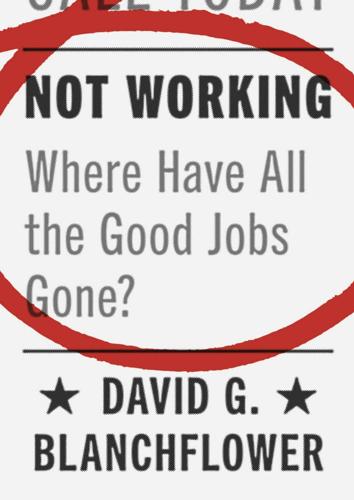
Not Working: Where Have All the Good Jobs Gone?
by
David G. Blanchflower
Published 12 Apr 2021
Their explanation resonates as it seems to explain the rise in populism elsewhere too. The voters of the 1950s and 1960s, most of whom grew up amidst economic depression and war, prized “material” values, like basic economic security and social stability. In sharp contrast, their children and grandchildren take such things for granted and, instead, focus on “post-material” values like liberty, human rights, and environmental protection…. Younger voters, who have grown up and prospered in a more mobile and interconnected world, tend to have weaker attachments to their nation of birth, a thinner and more instrumental sense of what national identity means, a greater openness to immigration, and a greater acceptance of ethnic diversity. (2014, 156) The Left-Behinds Voted for Le Pen In an intriguing essay, Christopher Caldwell suggests that for those cut off from France’s new-economy citadels, the misfortunes are serious.
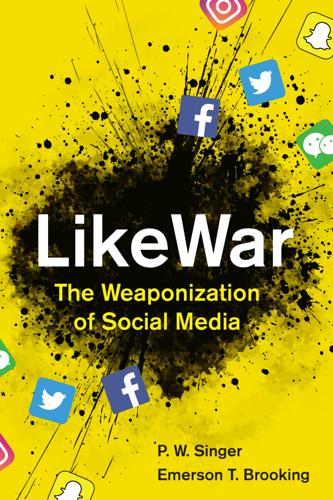
Likewar: The Weaponization of Social Media
by
Peter Warren Singer
and
Emerson T. Brooking
Published 15 Mar 2018
This wasn’t a problem—it was the whole reason services like Blogger existed: to share the panoply of human expression, emotions, and beliefs. By contrast, violations of intellectual property rights were covered not by the permissive Section 230, but by the much stricter 1998 Digital Millennium Copyright Act (DMCA). This law imposed a maximum prison sentence of five years or a fine of $500,000 for the first offense of posting material for which someone else held a copyright. Fortunately, much like Section 230, the law also included a “safe harbor” provision. If websites promptly responded to a takedown notice filed by the copyright holder—without pausing to consider the merits of the request—they could avoid being sued or jailed.

For the Win
by
Cory Doctorow
Published 11 May 2010
He was only nineteen now. He’d be thirty-four, and that was only if the lawyer was estimating correctly. “Oh,” he said. “Well, not that you’re going to have to take part in fifteen years’ worth of this. It’s likely we’ll be done with your part in a year, tops. But the point is that when you go online and post material that’s potentially harmful to this case—” Death closed his eyes. He’d posted the wrong thing. This had been a major deal when he was at Disney, what he was and wasn’t allowed to post about—though in practice, he’d posted about everything, sticking the private stuff in private discussions. “Look, you can’t write about the case, or anything involved with it, that’s what it comes down to.
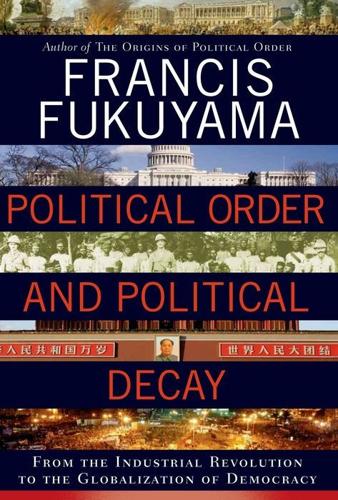
Political Order and Political Decay: From the Industrial Revolution to the Globalization of Democracy
by
Francis Fukuyama
Published 29 Sep 2014
A number of cross-national studies have shown that middle-class people have different political values from the poor: they value democracy more, want more individual freedom, are more tolerant of alternative lifestyles, etc. Political scientist Ronald Inglehart, who has overseen the massive World Values Survey that seeks to measure value change around the world, has argued that economic modernization and middle-class status produce what he calls “post-material” values in which democracy, equality, and identity issues become much more prominent than older issues of economic distribution. William Easterly has linked what he labels a “middle class consensus” to higher economic growth, education, health, stability, and other positive outcomes. Economically, the middle class is theorized to have “bourgeois” values of self-discipline, hard work, and a longer-term perspective that encourages savings and investment.3 From the earlier discussion of Europe in the nineteenth century, however, it should be clear that the middle classes are not inevitably supporters of democracy.
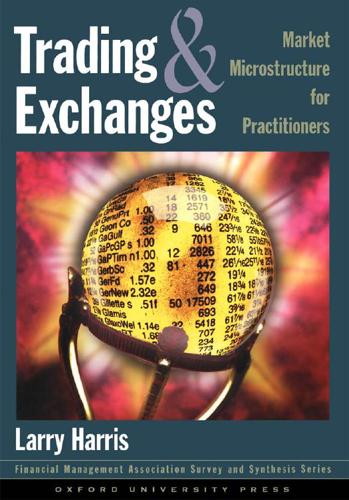
Trading and Exchanges: Market Microstructure for Practitioners
by
Larry Harris
Published 2 Jan 2003
He tells you that now would be a very poor time to sell. You therefore decide not to sell. You do not buy, however. Price subsequently rises when another firm offers to buy the company for a substantial premium. You clearly benefited from insider information. How should the law treat this situation? • Suppose that a corporation posts material information to its Web site at an unannounced and unscheduled time. By chance, you see the information and trade on it. Are you trading on insider information? Suppose the CEO tells you to look at the Web site. Are you then trading on insider information? • A corporate CEO gives a keynote speech at a large trade show in which she describes her expectations for the future prospects of her firm.

Engineering Security
by
Peter Gutmann
A similar situation occurs with other potential uses of access control mechanisms such as those provided by web servers, for which the best that users can do is “fight with whatever mechanism their content publishing software provides for access control” [218]. In many cases this is sufficiently awkward that users rely on ad-hoc techniques like posting material to obfuscated URLs that are unlikely to be guessed by outsiders, but unfortunately easy for search engines to find once there’s a link to them somewhere. (Having said that, online file-hosting services that allow (supposedly) controlled file sharing by automating the ad-hoc methods that users have come up with on their own are little better, providing easily-guessed URLs that offer little actual security.